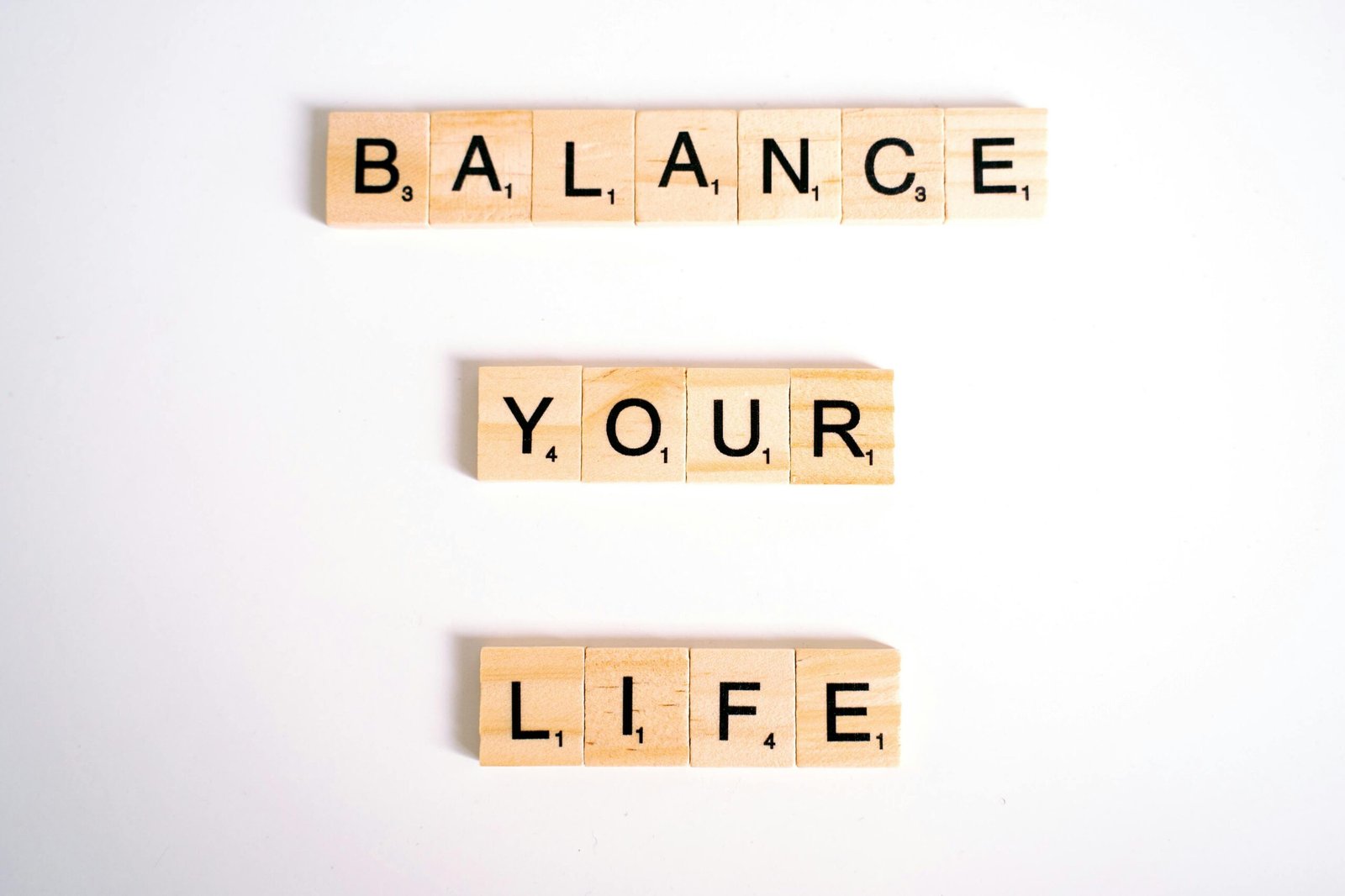Table of Contents

Introduction to French Lifestyle
The French lifestyle is a fascinating blend of work and leisure, characterized by a profound commitment to achieving a harmonious balance between professional responsibilities and personal well-being. This unique approach, deeply embedded in French culture, underscores the importance of creating a well-rounded life that nurtures both the mind and body.
At the heart of the French way of life is the value placed on savoring every moment, whether it’s enjoying a leisurely meal, spending quality time with loved ones, or engaging in meaningful, rewarding work. In France, there is a strong cultural ethos centered around the idea that life should be enjoyed, not just endured. This sentiment is reflected in their labor laws, which often include generous vacation time and a typical workweek of around 35 hours, allowing ample opportunity for personal pursuits and relaxation.
This emphasis on balance is evident not only in the time allocated for leisure but also in the manner in which the French approach their daily activities. French citizens prioritize moments of calm and contentment, whether it is through routine activities like enjoying a morning coffee at a local café, attending cultural events, or simply taking a stroll in one of their picturesque cities. Such practices contribute significantly to their overall sense of happiness and well-being.
Cultural values in France heavily stress the importance of relationships and community, further enhancing the quality of life. Meals are often social events, and weekends are typically reserved for family gatherings and socializing with friends. This strong social fabric fosters a robust support system, ensuring that individuals are well-integrated into the community, which is an essential component of happiness and mental health.
Thus, the delicate balance maintained by the French between work and personal happiness sets an inspiring example. This equilibrium not only boosts productivity and creativity in their professional lives but also brings a sense of fulfillment and joy in their personal endeavors. The French way of life, with its emphasis on balance, offers valuable insights into how to lead a more satisfying and enriched life.
Historical Context of French Work Culture
The evolution of the French work culture is deeply rooted in its rich historical tapestry. Over the centuries, France has witnessed significant transformations, driven by historical events, political decisions, and economic reforms, all of which have culminated in a unique approach to work and life balance. The French perspective on labor has always been influenced by a desire to harmonize professional responsibilities with personal well-being.
One pivotal moment in this evolution was the aftermath of the Industrial Revolution in the 19th century, which saw a significant shift towards urbanization and factory work. This period highlighted the necessity for improved labor conditions and prompted the establishment of foundational worker rights. The early 20th century further cemented these changes with the emergence of trade unions advocating for better wages and working hours. The spirit of these movements echoed in policies that emphasized the significance of balancing work duties with personal time.
In post-war France, the Trente Glorieuses (Thirty Glorious Years) marked an era of economic prosperity, further shaping the labor framework. During this time, the French government introduced numerous social welfare programs, reflecting a national ethos that prioritized citizens’ quality of life. The 1980s and 1990s witnessed another landmark transformation with the introduction of the 35-hour workweek law in 2000 by Prime Minister Lionel Jospin’s government. This groundbreaking legislation underscored France’s commitment to reducing work hours while safeguarding productivity and competitiveness. By law, companies were encouraged to hire more workers to cover the reduced hours, thus promoting employment.
Moreover, French labor policies have consistently aimed at protecting workers’ rights through various regulations enforcing paid vacations, healthcare, and parental leave. This progressive stance extends beyond mere legislation; it reflects a deeper cultural appreciation of life’s pleasures alongside professional endeavors. The historical evolution of the French work culture, marked by progressive reforms and a continual balance between work and leisure, encapsulates not just a set of laws, but a way of living that upholds the value of enjoying life’s simpler pleasures while maintaining professional diligence.
Café Society and the Importance of Leisure
Café culture in France represents much more than a place to grab a cup of coffee. It is an integral part of French daily life, acting as a social hub where relaxation, conversation, and networking seamlessly blend. These spaces foster a sense of community and provide a welcome respite from the demands of a busy work schedule.
The French approach to leisure, particularly within the café setting, underscores a balanced lifestyle. Whether nestled on a bustling Parisian boulevard or a quaint village square, cafés invite patrons to pause, whether for a leisurely breakfast, a mid-morning coffee break, or an evening aperitif. Frequenting these establishments encourages social interaction and helps cultivate meaningful connections, both personal and professional.
Regular breaks at a café contribute significantly to de-stressing and rejuvenation. In the French way of balancing work and pleasure, these moments provide mental clarity and a renewed focus, enhancing overall productivity and well-being. Breaking free from the confines of the office to enjoy a leisurely cup of coffee or a chat with colleagues can invigorate the mind, fostering creativity and innovative thinking.
The ambience of a French café is often characterized by its relaxed atmosphere, offering an ideal backdrop for reflective thought or casual business discussions. The setting inherently promotes a slower pace, counteracting the fast-paced nature of modern work life. This balance is key to sustaining long-term productivity and maintaining a healthy work-life equilibrium.
In essence, the significance of café culture in France lies in its role as a crucible for balancing work and leisure. It exemplifies how integrating regular, unhurried breaks into daily routines not only enhances social bonds but also fortifies mental resilience. The French mastery of this balance serves as a model, illustrating that the art of living well includes cherishing moments of leisure amidst the rigors of professional life.
The Role of Meals in Daily Life
In French culture, meals are more than just a time to eat; they are a cornerstone of daily life, emphasizing the importance of balance. Lunch and dinner, in particular, serve as key pivots around which social interactions and community bonding revolve. Unlike the often rushed, utilitarian approach seen in other cultures, the French take considerable time to enjoy their food, making dining an art form and a moment to relish.
The tradition of taking time to savor meals allows for a richer, more fulfilling experience. Lunchtime can be a leisurely affair, lasting up to two hours, where colleagues and friends gather to enjoy multi-course meals that encourage relaxation and conversation. This break from the day’s demands provides a much-needed opportunity to recharge and connect with others, forming an integral part of the work-life balance that is crucial to French living.
Dinner, too, holds a special place in French daily life, often extending late into the evening. It’s a time when families come together to share their day’s experiences, strengthening bonds and fostering a sense of unity. Multi-course meals are the norm, featuring an array of dishes that are savored slowly, from the entrée and plat principal to the cheese course and dessert. Each course is an opportunity to appreciate the culinary craftsmanship and distinct flavors, adding to the overall dining experience.
This cultural emphasis on dining contrasts sharply with the fast-paced lunch hours common in many other societies. In those cultures, quick meals are often consumed on the go, driven by the demands of a busy workday. In contrast, the French approach to mealtime exemplifies a commitment to balance, reflecting a lifestyle that values pleasure and human connection as much as productivity. This deliberate pacing of meals not only promotes better digestion and well-being but also underlines the harmonious blend of work and leisure that defines the French way of life.
Vacation and Paid Leave
France is renowned for its well-structured approach to vacations and paid leave, an integral part of the broader culture that prioritizes personal time and relaxation. The French legislation mandates a generous provision of paid leave, usually amounting to five weeks annually, which is among the most liberal in the world. This policy is emblematic of the country’s deep-seated emphasis on ensuring a balanced lifestyle, where work and pleasure coexist harmoniously.
A distinctive aspect of the French vacation culture is the widespread practice of taking extended time off, particularly during the month of August. It is common for businesses to reduce operations or even close during this period, as employees embark on vacations en masse. This societal norm is more than just tradition; it’s a deliberate strategy to alleviate stress and promote mental well-being. The lengthy break allows individuals to disconnect from the rigors of professional life, engage in leisurely activities, and spend quality time with family and friends.
The benefits of this approach are multifaceted. From a health perspective, extended time off contributes to lower stress levels and better overall mental health. The positive effects are also evident in the workplace, where employees return revitalized and with renewed vigor. This rejuvenation directly correlates with enhanced productivity and creativity, reinforcing the idea that a balanced work-life ecosystem is crucial for long-term success.
In essence, the French model of vacations and paid leave highlights the importance they place on equilibrium between work obligations and personal joy. It underscores the belief that productivity and pleasure are not mutually exclusive, but rather complementary facets of a fulfilling life. By institutionalizing this balance, France serves as an exemplar in championing a culture where personal well-being is viewed as a cornerstone of both individual and corporate prosperity.
Balancing Workload and Deadlines
One of the defining characteristics of the French work culture is its balanced approach to managing workloads and deadlines. This contrasts sharply with high-pressure work environments commonly seen in other parts of the world. By setting realistic goals and embracing effective time management practices, the French have mastered the art of maintaining productivity without sacrificing personal time.
One prominent strategy employed in France is setting realistic and achievable goals. French professionals often assess the scope and complexity of their tasks and distribute their workload accordingly. By breaking down projects into manageable segments with reasonable deadlines, they ensure that work remains consistently productive yet not overwhelming. This method not only alleviates stress but also fosters a sense of accomplishment and progress.
The importance of regular breaks is another cornerstone of the French approach. It is widely recognized that taking short, frequent breaks throughout the workday enhances overall productivity and concentration. French workplaces typically encourage employees to step away from their desks, whether for a brief coffee, a walk, or to socialize with colleagues. These pauses serve to refresh the mind and rejuvenate energy levels, striking a balance between work demands and personal well-being.
Effective time management is also a hallmark of the French work ethic. Prioritizing tasks, using tools for organization, and maintaining a structured schedule are common practices. By planning their day with precision, French professionals ensure that all necessary tasks are completed within allotted timeframes. This methodical approach minimizes last-minute rushes and the stress associated with looming deadlines.
Moreover, the French system often incorporates flexibility in the working schedule. Flexibility allows for adjustments based on personal needs and work-related demands, promoting a harmonious balance between professional responsibilities and personal life. Work-life balance is not just a buzzword in France; it is a lived ethos, integral to the national work culture.
Collectively, these strategies—realistic goal-setting, regular breaks, effective time management, and schedule flexibility—contribute to a balanced work environment where productivity and personal well-being coexist harmoniously. The French model demonstrates that it is possible to meet professional demands without compromising on the pleasures and necessities of personal time.
Social and Family Life
In French culture, the emphasis on social connections and family is pivotal in maintaining a balanced lifestyle. Regular social gatherings and quality time with family members are not mere pastimes but vital components of daily life. This dedication to personal relationships often takes precedence over work commitments, reflecting a societal norm that values human connection and communal well-being.
One staple of French social life is the traditional Sunday family lunch. This gathering typically spans several hours and serves as a time for family members of all generations to come together. It is a moment to unwind, share stories, and enjoy a leisurely meal prepared with care. Dishes might include classics like coq au vin or ratatouille, exemplifying the importance of culinary traditions in fostering familial bonds.
Beyond family meals, the French lifestyle is rich in rituals and celebrations that strengthen social ties. Celebrations such as birthdays, anniversaries, and holidays compel individuals to take a pause from their professional lives to honor personal relationships. For instance, Bastille Day, celebrated on July 14th, is not only a national holiday but an event that brings communities together with parades, fireworks, and joyous gatherings.
On an everyday level, cafés and local markets serve as hubs for social interaction. Frequent visits to neighborhood bistros for a morning espresso or an evening glass of wine facilitate regular, albeit casual, encounters with friends and acquaintances. Such traditions highlight the French philosophy of balancing work with regular, meaningful social interactions.
Moreover, it is not uncommon for workplaces in France to encourage a balance between professional obligations and personal life. Concepts like the “right to disconnect” during off-hours and extensive parental leave policies reflect societal attitudes that prioritize well-being over relentless productivity.
Ultimately, the art of French living is deeply intertwined with the nurturing of social and familial relationships. These bonds not only enrich individual lives but also fortify the social fabric, presenting a compelling model of how balance can be achieved through community and connection.
Work-Life Balance Strategies for Global Adoption
Balancing work and leisure is an aspect of French culture that has garnered attention globally, thanks to the benefits it provides in terms of productivity and well-being. Organizations and individuals outside France can adopt several strategies to mirror this harmony effectively. A pivotal step is the implementation of more flexible working hours. By allowing employees to adjust their schedules to personal needs, businesses can enhance job satisfaction, reduce stress, and ultimately increase productivity. This tailored approach also mirrors the French regard for personal time and can lead to a more motivated and loyal workforce.
Emphasizing regular breaks throughout the workday is another strategy worth adopting. In France, it is common for workers to take short breaks to recharge, which helps maintain focus and efficiency. Integrating short, frequent breaks can prevent burnout and keep employees engaged. Companies can create policies to encourage these pauses, aligning with a culture that understands the importance of downtime in maintaining high performance.
Promoting a culture that values personal well-being is crucial. French organizations often emphasize the importance of social connections and activities outside of work. Encouraging employees to spend time with family and pursue hobbies can lead to a more balanced and fulfilling life. Businesses can support this by offering wellness programs, promoting a healthy work-life balance, and recognizing the importance of personal time.
In adopting these elements from the French approach, organizations can achieve not only a more content workforce but also tangible business benefits. Higher employee satisfaction usually leads to lower turnover rates, enhanced company reputation, and improved overall performance. The balance between professional responsibilities and personal life is not just a hallmark of French living; it’s a valuable model for global adoption, fostering an environment where both work and leisure thrive harmoniously.







3 thoughts on “The Art of French Living: Balancing Work and Peace”